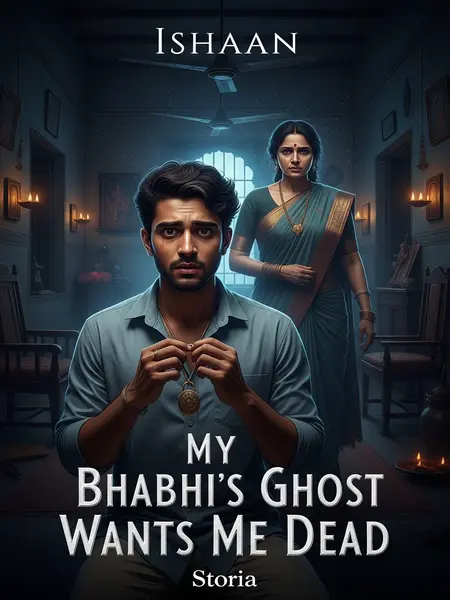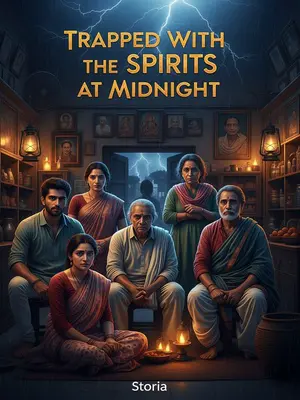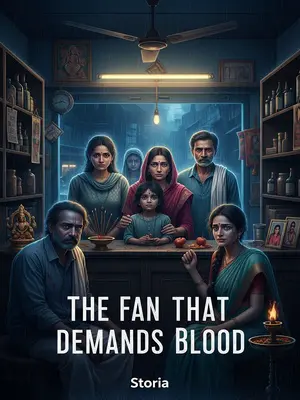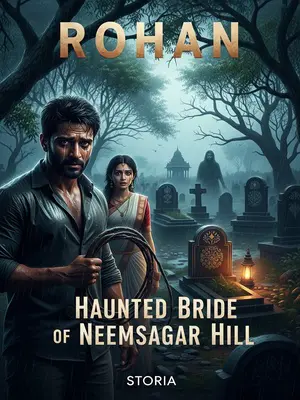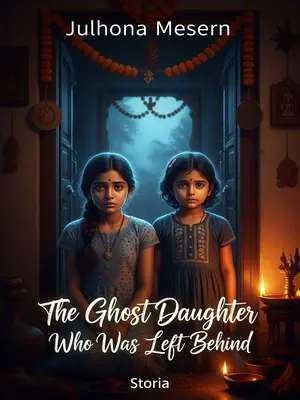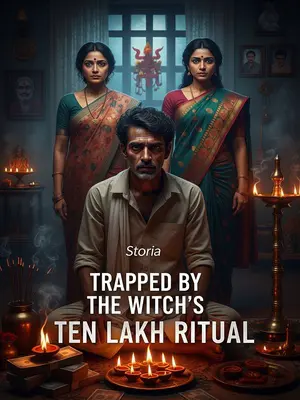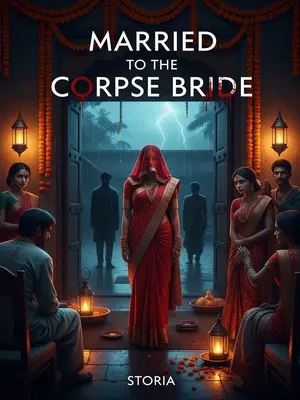Chapter 2: Rituals and Warnings
A sound burst from my throat—loud enough that even the crows on the neem tree outside fell silent. My legs turned to jelly, and I clutched the end of my kurta, fingers trembling. For a moment, the world seemed to tilt sideways.
My mother’s face darkened as she walked towards me. She patted my shoulder and said, "Don’t just stand there. Hurry up and call Pandit Mishra."
Her touch was cold and urgent, the kind that leaves no room for questions. Even in her grief, her voice was sharp—a mother who knows when things are slipping out of her hands.
Pandit Mishra is the local priest in our colony—a man well known for his rituals and spiritual knowledge. His veranda was cluttered with old agarbatti boxes, a transistor radio playing bhajans, and a stray kitten curled on his doormat.
He’s the one everyone calls for every mundan, griha pravesh, or even when someone’s TV stops working and they suspect bad nazar. His thin white hair and wise eyes have seen more births, deaths, and dramas than any TV serial.
I stumbled and scrambled all the way to Pandit Mishra’s bungalow. My slippers slapped against the broken pavement, heart pounding in my ears. In the dark, stray dogs barked at my shadow. I was breathless by the time I reached the faded green gate, nearly tripping over a stone at the entrance.
Pandit Mishra tapped his old wooden mala, sitting silently for a long time before he finally spoke. He sat cross-legged on the verandah, surrounded by faded posters of gods and a brass bell that had seen better days. His thumb moved rhythmically over the beads. The air was thick with sandalwood and something older, heavier. He didn’t look up at first, only sighed as if he’d expected me all along.
"Ishaan, you should go back. What’s happened in your family is too serious—it’s beyond my abilities."
His words hit me harder than a slipper in Amma’s hand. For a man whose job it is to talk to gods, to hear him refuse so flatly—my mouth went dry. It was as if a doctor had given up on a patient before even checking the pulse.
I grew anxious immediately and grabbed Pandit Mishra’s withered hand. "Pandit ji, you can’t just stand by and do nothing!"
I fell at his feet, my forehead touching the cold marble. For a split second, I remembered doing the same as a child—during exam results, when I had fever, whenever I wanted God to listen fast. My voice cracked, desperate and raw. “Please, Pandit ji! Kya aap kuch nahi karenge? You are the only one who can help us!” My words came out rushed, mixing Hindi and English in a way that only panic allows.
Pandit Mishra lifted his eyes and said nothing. His gaze was heavy, almost pitying. For a moment, the only sound was the buzzing of a lone mosquito. The silence stretched, so taut it felt like something would snap.
I gritted my teeth and dropped to my knees, bowing my head to the marble floor with heavy thuds. Blood began to seep from my forehead, but I didn’t stop. Only when I was about to faint did Pandit Mishra finally give in and help me up.
With every bow, I remembered the old stories—how only true penance moves the gods. The marble was cool and hard, my forehead throbbing, and yet I didn’t care. It was only when I felt Pandit ji’s hand on my shoulder, lifting me up, that I realised tears had streaked down my face, mixing with blood. My kurta was damp with sweat.
Pandit Mishra squinted at me. "Ishaan, I can come with you, but let me be clear: I can’t guarantee it will work."
His voice was grave, but a faint flicker of something—maybe hope, maybe fear—passed through his eyes. He adjusted his shawl, and for the first time, I noticed his hands shaking ever so slightly.
I quickly replied, "Pandit ji, as long as you come with me, it’s fine, even if it doesn’t work."
My voice was barely more than a whisper, but I meant every word. In times like these, even a glimmer of help is enough to clutch at. My heart thudded with anxious gratitude.
Pandit Mishra told me to fetch two pairs of red agarbatti sticks from the pooja shelf. Then he drew a bucket of water from his well, and I followed him closely.
The agarbattis were tucked behind a cracked photo of Saraswati Mata, their red tips promising some comfort. The well creaked as Pandit ji hoisted up the bucket, beads of sweat forming on his brow even in the early morning air. I followed him, carrying the agarbattis as if they were fragile glass.
Unable to contain my curiosity, I asked why he needed the water. Pandit Mishra’s expression was unreadable. "You’ll know soon enough."
He glanced at me, lips tight, as if swallowing words he dare not say. Something in his tone told me not to ask further, but curiosity is a stubborn itch—especially in moments like these.
